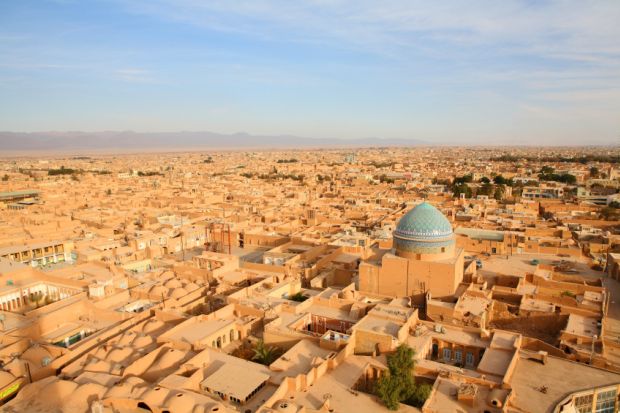Come to our MENA Universities Summit from 2-4 February 2016
Iran is preparing for take-off. At least this is how The Economist concluded a recent analysis of investment opportunities in the country.
Judging from media coverage such as this, and the flurry of diplomatic activity in Tehran, the decision by Iran to roll back its nuclear activities in exchange for relief from international sanctions has already triggered a gold rush.
International companies are gearing up to take advantage of one of the biggest consumer markets in West Asia and North Africa.
After all, despite decades of sanctions, Iran remains the 18th largest economy in the world and it boasts one of the region’s most highly educated middle classes. Undoubtedly, the reintegration of the country into the world economy is likely to have a significant impact on the country’s higher education sector, too — Iranian students expect to benefit from new opportunities both within the country and beyond.
Since the revolution of 1979, successive Iranian governments have expanded the higher education sector in the country. According to the latest statistics, Iran has approximately 4.5 million students, of which 60 per cent are women.
Data from the United Nations Educational, Scientific and Cultural Organization (Unesco) indicate that enrolment at Iranian universities has more than doubled in a decade. In 2013, 58 per cent of Iranians aged 18 to 24 were studying at Iranian universities. The government has set the target at 60 per cent for 2025, and it is on track to reach this goal. Overall, Iranian parents spend more than £2.1 billion on the higher education of their children. With the lifting of sanctions, this financial commitment is likely to increase significantly, given the importance that Iranians ascribe to education.
Whereas Iran’s undergraduates are well accommodated in the country’s higher education institutions, the postgraduate infrastructure is much less developed. International cooperation could be most successful in this sector.
There is a huge discrepancy between demand for places and the ability of Iranian universities to absorb master’s and doctoral students.
As a result, the British Council concluded in a recent study, Iranian postgraduate students are likely to look abroad for opportunities: “In 2024, the US is forecast to be the top destination of the six selected markets for Iranian postgraduates, of whom 11,900 will study in the US. Other strong postgraduate flows of Iranian students will be to Germany (5,700), Canada (2,800) and the UK (2,700).”
This trend is attributable to demand outstripping supply in Iran itself, which has led to a brain drain of talent from the country.
Read more: International student cohort in US sees biggest growth in 35 years
But it is also caused by other factors. Iranians have a long tradition of pursuing further education abroad. More recently, restrictions and censorship in the fields of humanities and the social sciences have made foreign universities more attractive still. The more opportunity there is in those fields of study, the more Iranians are likely to be attracted.
Education shouldn’t be primarily about numbers, however. The ability of Iranian students to fulfil their dreams abroad should be seen as a significant element in what I have called a “philosophical dialogue” with Iran that goes beyond mere politics.
There is a strong desire by Iranian officials and members of civil society to internationalise Iran’s universities and to foster cooperation with other institutions both in the region and beyond. Undoubtedly the lifting of sanctions will make these efforts easier.
In the current climate of crisis, in particular in the region, such cultural diplomacy can only be welcomed.
Arshin Adib-Moghaddam is professor in global thought and comparative philosophies and chair of the Centre for Iranian Studies at Soas, University of London.




